
If you just bought a house in the northeast, chances are it gets heat from a residential boiler. While furnaces are more popular in the Midwest and western United States, residential boilers tend to dominate both new and existing homes out east.
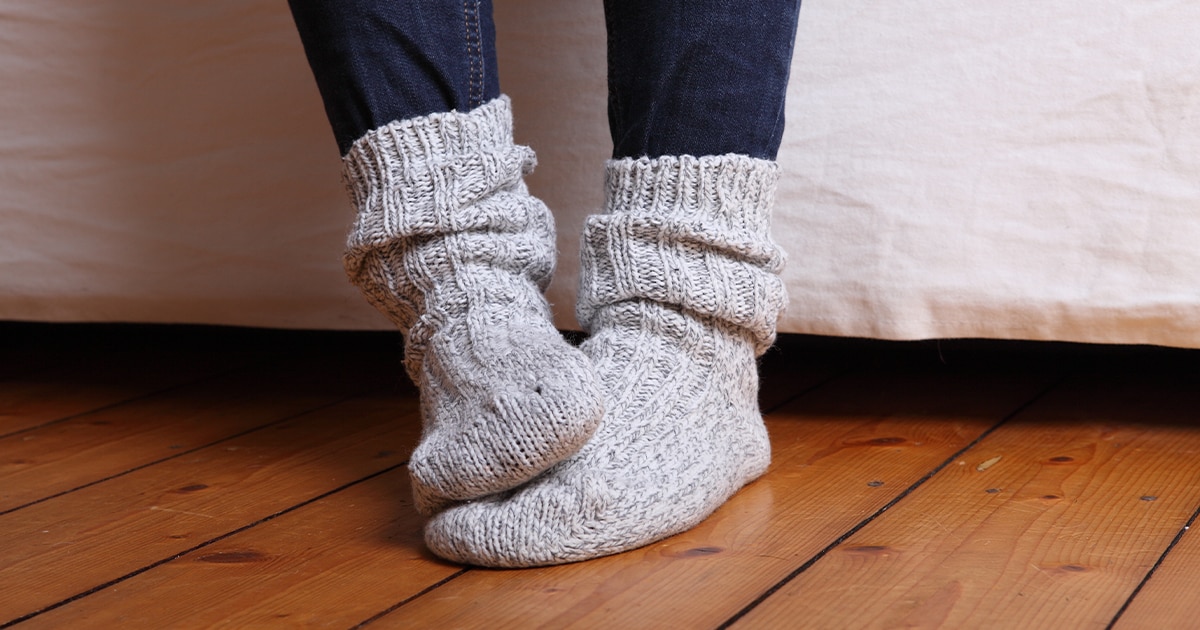 You may benefit from a home boiler if:
You may benefit from a home boiler if:
If the above sounds like you, then read the following guide to get started on your boiler buying journey.
A residential boiler works by using hot water or steam to heat a home. The hot water or steam flows through piping to radiators throughout the building. The radiators transfer the heat to the room, providing warmth.
Here are more specifics on the different types, or mediums, of boilers.
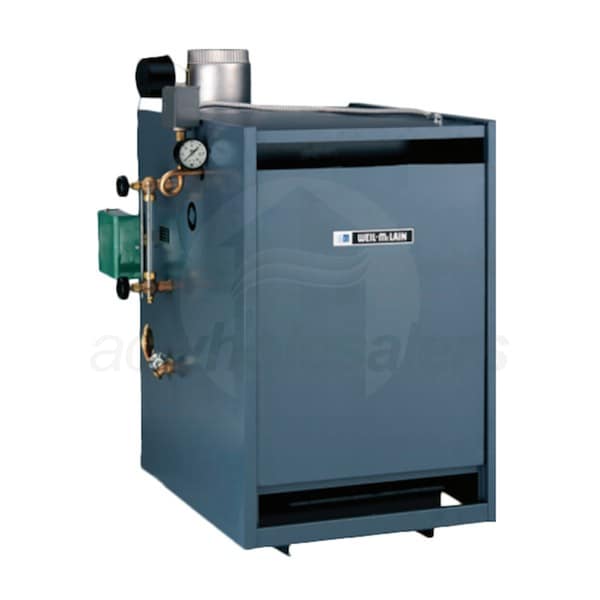 In steam boilers, a boiler furnace heats water until it becomes steam. The steam then naturally flows via supply pipes to radiators in different rooms of the house, providing heat. Eventually, the hot steam cools and reverts into water before flowing through return pipes back to the boiler where the process starts again.
In steam boilers, a boiler furnace heats water until it becomes steam. The steam then naturally flows via supply pipes to radiators in different rooms of the house, providing heat. Eventually, the hot steam cools and reverts into water before flowing through return pipes back to the boiler where the process starts again.
Steam boilers are often identifiable by a sight glass, which is a small glass tube partially filled with water. You can also check your radiators to see if they have an air vent, which is another sign that you have a steam boiler.
Because they are among the oldest boiler medium, steam boilers are often necessary when renovating historic homes if you want to keep that vintage look and feel. They also provide higher outputs of heat than hydronic boilers but cost more to run.
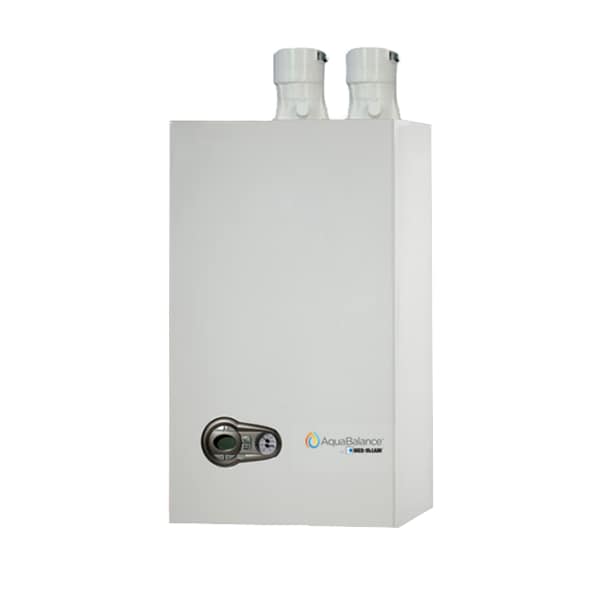 Hydronic boilers use a fuel source to heat water to a designated temperature and then manually pump it to radiator panels around the home. They require less energy than steam boilers and have become more common in modern homes.
Hydronic boilers use a fuel source to heat water to a designated temperature and then manually pump it to radiator panels around the home. They require less energy than steam boilers and have become more common in modern homes.
You can often identify a hydronic boiler by a circulator pump. Unlike steam, which naturally expands throughout the piping system, water needs a “push.” A circulator pump provides that push and distributes the hot water around your home.
Hydronic boilers also require an expansion tank. As water becomes hot, it expands and adds pressure. The expansion tank relieves the added pressure from expanding water so that the system doesn’t burst.
You can also use a hydronic boiler in combination with an indirect water heater for greater efficiency. The hot water from the boiler circulates to a coil in the indirect water heater and heats the domestic water for your shower, dishes, etc.
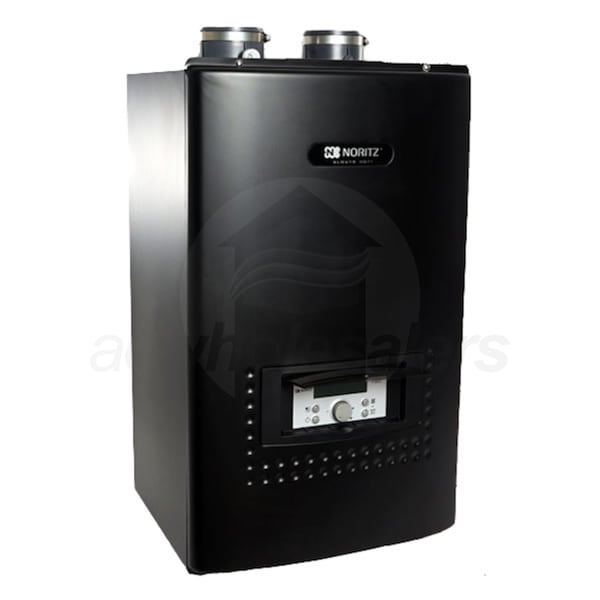 An emerging type of water boiler is a combination boiler and hot water heater. These units provide both water for central heating and domestic hot water. The domestic hot water side never mixes with the central heating side to avoid contamination.
An emerging type of water boiler is a combination boiler and hot water heater. These units provide both water for central heating and domestic hot water. The domestic hot water side never mixes with the central heating side to avoid contamination.
Combination boilers are highly efficient and save you money on installation and space. However, they are not designed for large homes or heavy demand.
Residential boiler systems require a fuel source to heat the water. There are four main boiler fuel sources:
A home boiler system's efficiency is determined by its annual fuel utilization efficiency percentage or AFUE. The percentage indicates how much of the boiler’s energy is converted into useable heat.
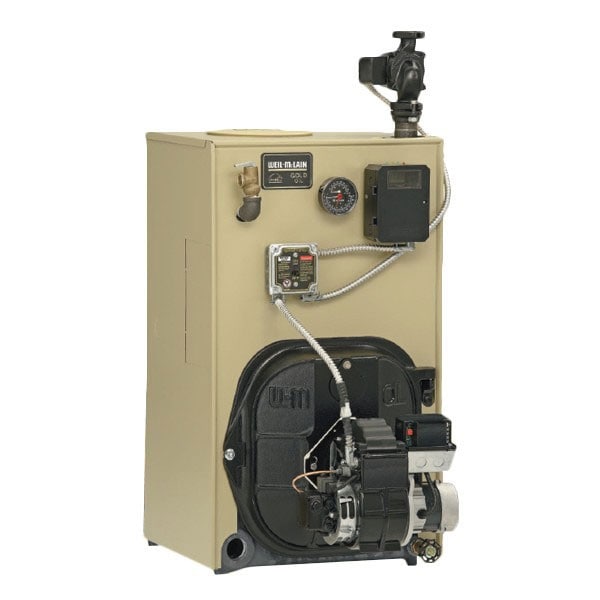
For example, a boiler with an AFUE of 90% converts 90% of its energy into heat and 10% is wasted as exhaust. Steam boilers are among the least efficient, typically with AFUE ratings of between 80% and 90%. Condensing hydronic boilers are the most efficient with AFUE ratings well into the 90th percentile.
A condensing boiler is so efficient because it recycles additional heat from the exhaust gases to preheat incoming water. As a result, the exhaust gases are cooler and allow for less-expensive venting to be used, such as PVC.
The higher your boiler’s AFUE, the more you will save in energy use over time, although upfront costs will most likely be higher. High efficiency or condensing boilers will also qualify you for incentives and rebates from certain utilities and localities.
Another aspect of residential boiler system efficiency and performance is whether it modulates heat output. A single-stage boiler provides only one output of heat, meaning it’s either off or running at full power. This can lead to uncomfortable swings in temperature and short-cycling, which is when the boiler turns on and off repeatedly, causing wasted energy and unnecessary wear and tear.
A modulating boiler can operate across a range of heat outputs. It will use the lowest heat setting possible to keep you comfortable, saving energy and providing consistent temperatures throughout the day.
There are three options for venting exhaust gases from a residential boiler: chimney, power, and direct venting.
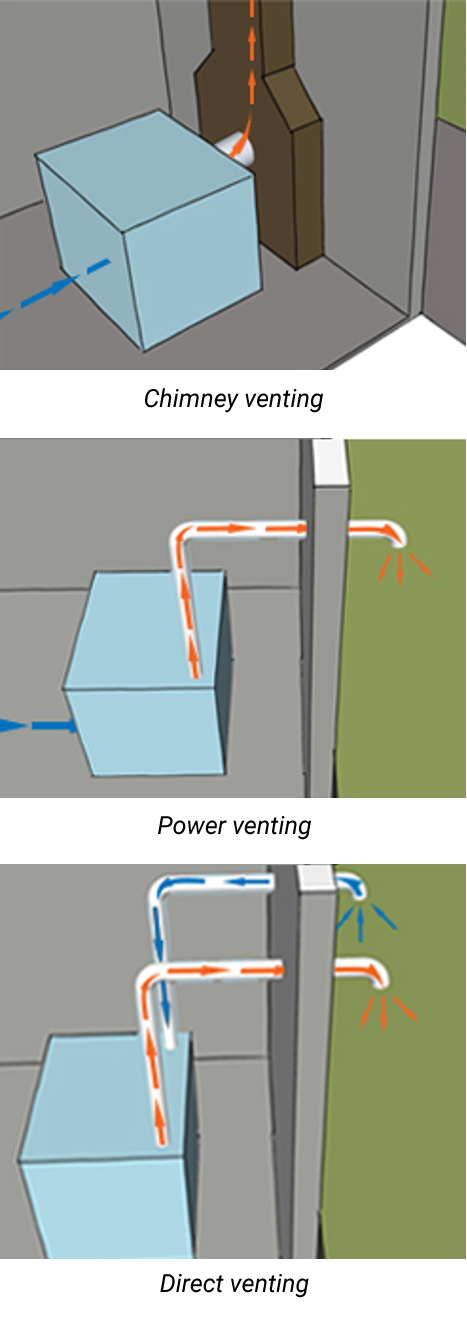 Chimney Venting: This is the oldest form of venting. The hot exhaust gases rise out of a home’s chimney, which must be the proper size and height. Fresh air flows into the boiler from inside to replace the exhausted air and feed combustion. This form of venting is typically used with lower-efficiency boilers.
Chimney Venting: This is the oldest form of venting. The hot exhaust gases rise out of a home’s chimney, which must be the proper size and height. Fresh air flows into the boiler from inside to replace the exhausted air and feed combustion. This form of venting is typically used with lower-efficiency boilers.Sizing a new residential boiler depends on the heat output (measured in BTUs) you need to effectively warm your home. This requires a Manual J Load calculation done by a professional, especially if you are switching to a higher-efficiency model.
If you are simply replacing an existing boiler with one of the same efficiency and size, locate the output ratings on the old boiler's heating plate or sticker. Many boilers were oversized in the past, so it's possible you can go a size smaller, but you should check with a professional to confirm.
A boiler's costs take into account both upfront and long-term expenses. Boiler medium, AFUE, output, venting, and local labor rates all impact upfront costs. On the other hand, efficiency and fuel type can impact lifetime costs.
For example, a 95% AFUE condensing hot water boiler may cost more upfront than an 81% AFUE steam boiler, but it will likely save you on monthly heating bills. Alternatively, if you choose a fuel type that is expensive in your area, you will likely negate any savings you would have otherwise enjoyed.
When it comes to maintenance, it is important to have a professional inspect your boiler once a year, preferably right before the heating season. This will ensure there are no gas leaks and that you're getting the proper heat output.
AC Wholesalers has a wide selection of hot water and steam boilers available with various heat outputs, fuel types, and AFUE ratings. Now that you understand how boilers work and the different options you have, feel free to browse our inventory.
Of course, if you have any questions, please don't hesitate to contact us. We'll be happy to walk you through the selection process and go into further detail on what to consider.
NEXT: Browse and Shop All Boilers